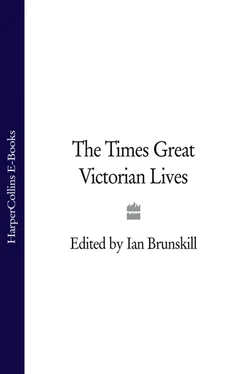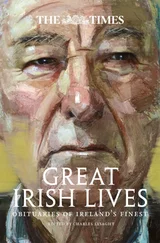From the beginning of 1851 everything was being made ready for a final conflict. Early in January Changarnier was removed from his command. In October and November the President laid his ultimatum–first before his Ministers, then before the Assembly. He proposed the repeal of the law of May 31, 1850, by which universal suffrage had been restricted. ‘That measure,’ said the President, ‘was tantamount to the disfranchisement of 3,000,000 electors.’ Had even the law really had such sweeping effects the President had but little to fear from an appeal to the people. Had even that law been in force in December, 1848, the balance of the votes would still have been decisive in his favour. Nothing, however, but the certainty of an overwhelming majority could allay his apprehensions. To insure it he resolved on the Coup d’Etat of the 2d of December. He laid a violent hand on his most dreaded opponents. He dispersed the less dangerous. He dissolved the Assembly and the Council of State. He abrogated the law of May 31, and re-established universal suffrage. He then called together the ‘Comitia of the nation.’ In the mean time he declared Paris in a State of Siege; he deluged its streets with blood; he terrorized France by wholesale transportation. He finally asked for a sanction or condemnation of his deed of violence. Seven millions and a half of Frenchmen against little above half a million gave sentence in his favour.
The Second Napoleon had thus his Deux Decembre, as the first had his Dix-huit Brumaire. The elevation of Louis Napoleon under any circumstances appeared so certain that one is almost tempted to fancy that wanton display of uncalled-for energy to have only been prompted by the nephew’s blind obligation to tread in his uncle’s footsteps. Every subsequent act of his, at any rate, was sheer repetition. From the 2d of December, 1851, to the same day and month of the following year, the Imperial Revolution went through the same phases which it exhibited from the 10th of November, 1799, to the 18th of May, 1804; only the more recent catastrophe was limited within a narrower cycle. There was the same impatient stir in the Departments; the same obsequious solicitations of the Senate; the same martial pageantries on the Champ de Mars; the same triumphal progress of the Cæsar. The Constitution was a paltry copy. The history on the coins was identical. Even the fortuitous coincidence of the assassin’s dagger and of the infernal machine was not wanting. It was only in the number of votes that the new generation outdid the old.
And now, at last, Louis Napoleon was back at the Tuileries. It would be to little purpose if we were to endeavour to realize his sensations, as, at the mature age of 44, the pale reminiscences of thirty-seven years since crowded upon him on the threshold of that lately desecrated palace. Verily, the man’s faith had its reward! That faith which never forsook him at the gloomiest periods of his career; that faith which, at a distance, raised a sneer at his expense, yet cast a magnetic spell over all who came within his reach – that faith proved to have been founded on unerring instincts. The Pretender’s claims were admitted. He had aimed no higher than his stubborn will could lift him. That intense yearning by which the uncle had been haunted all his lifetime had certainly fallen to the nephew, whatever other parts of the rich inheritance might have been denied to him. The words by which that undefinable feeling found utterance in the strain of the Italian poet apply with equal force to the two aspiring relatives. There was in both cases ‘the stormy, trembling joy of a great purpose, the longing of a heart fretting as it impatiently thirsted for empire, and attaining it at last, and grasping a prize for which it had seemed madness to hope.’
In the magnitude of the result people easily lost sight of the means by which it had been achieved. The cold shiver which had followed closely upon the revolutionary fever heat of 1848 had scarcely passed away three years later, and, under its fit, men were ready to go any length in the way of reaction. The cry was everywhere for strong Government; and, somehow, the Coup d’Etat, whatever might be the grounds of justice or expediency on which it was made to stand, was hailed as evidence of its author’s energy, and accepted as a pledge of social security. The hand which had displayed so much vigour in seizing the reins of government might surelybe relied uponto hold them with equal firmness. Even for men swayed by more rigid notions of right and wrong, the moral question how the supreme power had been obtained was absorbed in the other far more momentous problem – what uses it would be put to. The ends of Providence are often fulfilled in inscrutable ways; and it little mattered, after all, by what means another Napoleon had ascended the throne of France, if men could only ascertain how much of the good or the evil of the old Napoleonic era would be reproduced in the new.
We have already expressed our opinion that the nephew carried the worship of the uncle’s memory to the verge of superstition. He was, however, aware that there was a weak no less than a strong side to old Imperialism. He announced the coming not of the Caesarean but of the Augustan age. The Second Empire brought not a sword but peace. In the mind of the French people the mere reappearance of the Eagle, the revival of the name of Napoleon, constituted a victory over allied Europe. The Deux-Decembre had avenged Waterloo. France had broken through the dynastic arrangements of 1815, and her ancient enemies had not a word to say against her achievement. This negative homage being paid to her vanity, France had no longer an interest in the disturbance of the common tranquillity. Questions about natural frontiers, about oppressed nationalities might, indeed, arise; but moral ascendency could now, perhaps, accomplish more than the edge of the sword. France would be no less true to her mission because she put off its fulfilment by violent means till she was convinced of the inefficiency of all other arguments. There was, at the outlet, perfect harmony between the views of the French people and those of their new Sovereign with respect to foreign politics. There was faith in the undisputed, though pacific, ascendency of the Empire over the council of nations – in the necessity for a revision of existing Treaties, for a remodelling of the map of Europe, for the emancipation of enslaved nations, for the protection of minor States, of those especially which had shown the greatest devotion to the cause of Imperial France and had been involved in its downfall; of States like Belgium, Denmark, and Saxony; of nations like Italy and Poland. Over and above these general French sympathies, the Emperor brought with him, as peculiar to himself, a genuine regard for England, our own estimate of the true bases of national greatness, our notions of a free commercial policy. It is not a little remarkable that the first enterprise of real magnitude in which France was engaged, after panting for so many years to avenge Waterloo, should have been planned in concert with the very country upon which vengeance for that defeat was to be mainly wreaked. Yet the Crimean War of 1854 was waged not only in obedience to what the majority of the French people were inclined to consider as English views, but also in subservience to what they regarded as English interests. It was the Emperor’s own war, and Napoleon only brought it to a sudden end when we refused to mix up with the original quarrel those French schemes about Poland and the Rhine in which he found it difficult to withstand his people’s aspirations. Against the same rock were wrecked, in later times, 1864, all hopes of a cordial co-operation of the two great Western Powers in behalf of invaded Denmark. As to the immediate relations between the two nations, there is no doubt that against the half-smothered animosities of French Chauvinisim nothing availed us so much as the Emperor’s stout determination, not only not to be driven into hostilities but to strengthen the bonds of amity with us at any price. Neither the vapouring and blustering of the Press nor the famous address of the Colonels were able to shake the Emperor’s determination to maintain the cordial understanding between the two countries; and the conclusion of the Commercial Treaty and the abolition of passports in favour of English travellers must be traced to his sole initiative.
Читать дальше












